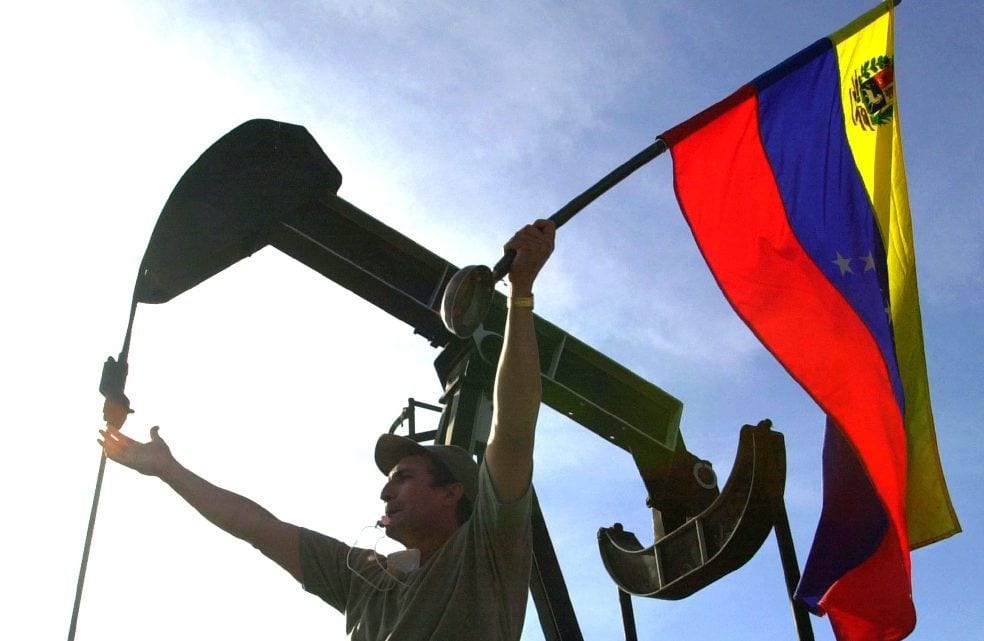An Oklahoma oilfield company that played a central role in Venezuela’s high-profile attempt to convince the world it could halt production declines at its dilapidated oilfields has shut its doors, according to three people familiar with the matter.
In 2016, Horizontal Well Drillers, a closely held U.S. driller, won a $1.29 billion contract to drill 191 wells in Venezuela’s Orinoco Belt, part of an unusual plan to sharply boost output and halt Venezuela’s economic collapse. It and two other drilling contractors were asked to finance the work themselves and be paid in future production, according to documents obtained by Reuters at the time.
But the blockbuster deal did not pan out for the company, its Canadian lender Callidus Capital Corp, or for Venezuela. Horizontal never completed the wells, its financial backer took a provision for losses on the loan, and Venezuela’s production continued to fall.
Todd Swanson, Horizontal’s former chief executive who attended the contract signing ceremony in Venezuela, did not respond to a request to his personal email or a LinkedIn account seeking comment. Jeremy Klein, its former president, also did not respond to requests for comment.
David Moore, an attorney for Callidus, wrote in response to requests for comment that “any reporting on the Horizontal matter would necessitate a meticulous review and understanding of the existing public disclosure, which is utterly lacking from your inquiries.”
Moore did not respond to questions about the size of the loan, recoveries or other specifics. But he emailed legal documents citing a previous allegation by Callidus that one of its former executives had tampered with the Horizontal loan. That litigation centers on claims by Callidus and its main owner, Catalyst Capital Group Inc, that various investors, borrowers and journalists had conspired to hurt the two Toronto companies.
PDVSA did not reply to a request for comment on the agreement.
U.S. SANCTIONS HIT DEAL
Horizontal opened an office in Venezuela, according to an oil industry executive in Venezuela. U.S. sanctions against state-run oil firm PDVSA put the project on hold, said another person who answered a call to its Purcell, Oklahoma, office, but declined to be identified.
The contracts were big news in Venezuela, where cash-strapped PDVSA had driven away top international suppliers by not paying its bills on time or making payments with promissory notes.
Swanson, Horizontal’s CEO, stood alongside Venezuelan President Nicolas Maduro during a 2017 televised signing ceremony where Maduro touted the three drillers’ potential to add up to 250,000 barrels per day to its oil output.
Instead oil output fell. Venezuela pumped 1.01 million barrels per day of crude from January through November last year, according to official numbers, near a 75-year low for the country and less than half the nation’s 2.49 million bpd when the deal was announced.
MISADVENTURE HITS FINANCIER
On Tuesday, Horizontal’s drilling equipment goes on the auction block in Oklahoma City in what Superior Energy Auctioneers advertised as a “complete liquidation.”
The Oklahoma company’s misadventure in Venezuela was followed by a sharp drop in U.S. demand for drilling services. The number of active rigs fell to 781 this year, according to energy services firm Baker Hughes Co BRK.N, down 27% from a year ago as U.S. shale producers slashed spending.
Horizontal Well Drillers took out a 48-month, $350 million credit line from Callidus to finance its Venezuelan award, Reuters reported in 2016, citing a PDVSA document.
Toronto-based Callidus recorded a loss provision of C$131.9 million in 2017 to an energy company affected by U.S. sanctions on a South American country, according to securities filings. The filings did not identify the borrower.
Callidus’ stock price dropped from around C$20 a share in January 2017 to around 75 cents in late 2019, when a large shareholder took the company private.


